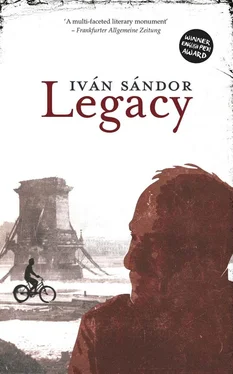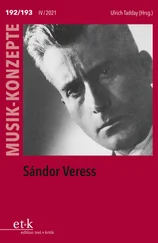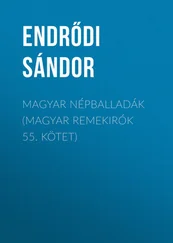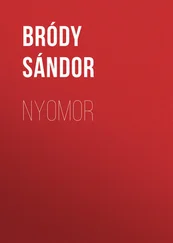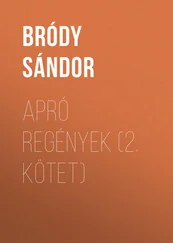Gizi rushes out of the building. She is wearing a Red Cross armband and a man with a submachine gun pushes her into the line. Gizi loudly demands to speak to the commanding officer. Another Arrow Crosser comes over. Gizi shows him her papers, and she is led to the front of the line. A regular army second lieutenant lets her return to the building.
The Arrow Crossers split us up into three groups. Vera and the two children are in the second group; I am in the third. At the head of each group are two men with submachine guns. Gendarmes form the rearguard. Gizi reappears and confers with the second lieutenant. As she passes by I call out her name sotto voce. Try to be patient she whispers back, even when the order is given to march off. Tell the others; try to be patient. Riegler snorts with laughter. And what if your arse is getting shot at? Are you still supposed to try to be patient?
Several of the supervisors step out of line and gather with the group of infants and girls to discuss things with Gizi.
The first group is sent off. Bayonets are set on the rifles, right hands on the stocks of submachine guns. Commands ring out with the second group. Vera is hidden from view by taller girls. A black Packard turns in off Andrássy Avenue. It brakes. I have already seen the bespectacled man who gets out of the car, the woman who is with him, too.
Gizi runs towards the car.
A lieutenant-colonel has also arrived in the car. He orders the regular army second lieutenant over. The lieutenant stands to attention in front of him and says he must execute the order given by a superior officer. Two Arrow Crossers step up and point their submachine guns at the lieutenant-colonel. The woman produces a camera, and one of the machine gunners yanks it out of her hands. The bespectacled man displays his identity papers. The lieutenant-colonel says that he has just come from the Ministry for Foreign Affairs, the higher order is valid. Individuals of all military marks are obliged to discharge diplomatic agreements. He rips the camera out of the hands of the Arrow Crosser with the submachine gun and hands it back to the woman.
The lieutenant salutes. The woman takes the photograph. She tells Gizi to stand in front, darling, let me have at last have a picture of you. Gizi does not move. The woman takes a photograph of her where she is standing. Maybe I also got into the frame.
We troop back in threes. The first group could not be caught up with. A man with a Red Cross armband runs up; they have already been marched through the ghetto’s wooden gate, he says.
Leader of the nation Szálasi takes cognisance of the International Committee of the Red Cross’s memorandum on the protection to be accorded to Jewish children’s homes and other Jewish charitable institutions only to the extent that they are able to continue their operations within the ghetto.
The Packard sets off with Gizi sitting in the car. In the vestibule the man who brought the news that the first group could no longer be reached comes over to me. He inspects the duffel coat. Are you the one who lent the windcheater to Soproni? He asked me to pass on the message that he’s sorry but it won’t be possible to swap back for the time being. But this is too big for me, and it’s heavy. I can see that, but he can’t do it. Why not? There is an assertive edge to my voice. Look, kiddo, he was taking part in an action, and first of all they need to extract a bullet from him and wash off the blood from the windcheater.
Frau Lutz was a decent stick, Gizi reckoned, said Mother, only she took to the bottle a bit more than she should, but then Gizi herself hit the bottle quite often. By then it must have become clear that she was not going to find Bőzsi, but she still asked around when she came in every other day to visit us in the hospital.
We go back to our rooms. Vera waves from the bend in the corridor, holding on to Judy with the other hand.

Carl Lutz tries again to establish contact with Berne. He then looks for Friedrich Born, the authorized representative of the ICRC but does not find him in his office. In one of the rooms that is used as a darkroom Gertrud herself develops the roll of film she took of the Arrow Cross assignment. She pins up the new series of shots next to the pictures that are already on the wall.
In the first picture Gizi is to be seen with, behind her, the two Arrow Crossers with submachine guns who were on duty at the entrance to the Red Cross home on Mihály Munkácsy Street. In the next shot Gizi is standing next to three boys in the column which is ready to set off. The boys are around fourteen or fifteen years old; one of them is wearing a conspicuously long overcoat. This was the first time Gertrud had seen a coat decorated with that sort of braiding. On a loggia of the building opposite the children’s home an elderly women is leaning over. She has a bread roll in one hand and is taking a bite out of it.
Gertrud also took pictures when she was in the Packard as it was driven towards the embassy on Szabadság Square. In this next series are bombed-out buildings. The Arrow Cross sentries in front of number 60 Andrássy Avenue. A group of children wearing yellow stars in Hitler Place. 5A boy on a bicycle next to the column. He cannot be more than fourteen. He is wearing the uniform of one of the cadet schools: green collar patch without any insignia of rank, something like an officer’s cap with two brass buttons. Gertrud took the shot when he was passing them, keeping his eye on the car with diplomatic number plates. She gazes at the boy pinned up on the wall. The cap has slipped down to his left eyebrow; stern; there is an expression on the face.
That day the front line reached Gödöllő, just to the north-east of Pest. The battalion of troops that was left from the routed Hungarian 18th and 10th infantry divisions were pulled into the German formations. Somewhat further east a large part of the badly trained reserves deserts at the village of Tápiósgyörgy on 12 December. To replace them two thousand Arrow Cross volunteers. Colonel Pál Prónay, a hussar who formed a company of officers during the White Terror in 1919, prepares the force for deployment. László Vannay, who had also been in the officers’ company in 1919, organized a battalion formed mostly of youths between the ages of fifteen and eighteen and using drill sergeants from the SS 22nd Cavalry Division. On the same day that Gertrud had a prolonged view of the cadet-school cyclist, Vannay’s detail murdered several dozen people in the cellars of the Toldy Gymnasium in Buda and by the bank of the Danube, executing army deserters and Soviet soldiers who had been taken prisoner. Ferenc Szálasi bestowed the rank of major on Vannay, who made good the losses in his battalion by staging round-ups in cellars, thrusting rifles into the hands of anyone considered able to fight and, without training, pitching them straight into active service.
‘Ervin Gálantay, volunteer dispatch rider for the Vannay battalion, as a pupil at the Kőszeg cadet school’ — a photograph signed Krisztián Ungváry on page 91 of a book entitled Budapest ostroma ( The Siege of Budapest ) published in 1998. Oval head, military cap pulled down to the right eyebrow. Stern expression on the face.
Carl Lutz comes out of the other room and views the photographs that have been pinned up on the wall. Most particularly that in which Lieutenant-Colonel Bagossy, who is accompanying him, is pointing his revolver at the lieutenant wearing the Arrow Cross armband. I can’t make Bagossy out, says Carl Lutz. He’s a wild beast. He imagined that the secrets within the pictures were beyond his knowledge. Lutz takes photographs in order to capture things that other people would not discover; Gertrud likewise. Could it be there is something to be discovered in the picture but not what he had thought? Many of the details are for him unidentifiable, even though he thought he had remembered everything. The looks, the place, the weather … Apparently not … He tries to conjure up his earlier self on earlier pictures, in which he, too, can be seen. Everything can be seen, yet it’s still as if something were missing. Two weeks earlier he had taken a picture of the entrance to the Foreign Ministry in Berne. He had felt like taking a few photographs of the city; he had sought something in the entrance to the building, but he only now woke up to what that was while looking at the photographs pinned up on the wall. In the Foreign Ministry the response to all of his questions was that they had received his reports and collated them, whereas the truth was they had kept quiet about them and let them rot at the bottom of desk drawers.
Читать дальше
